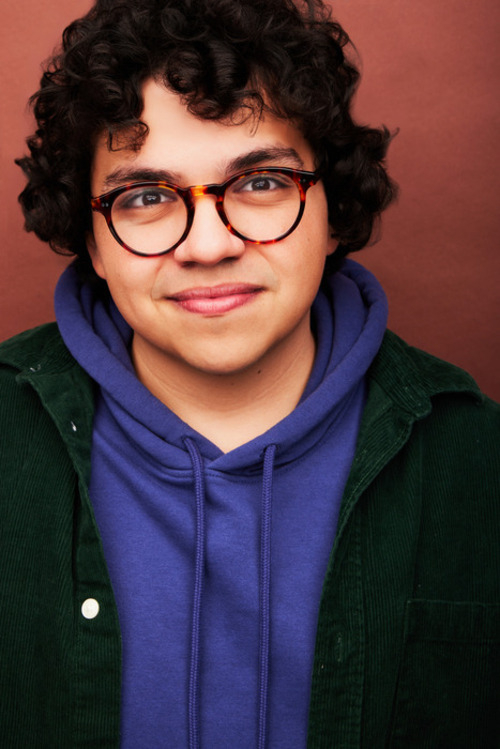
Looking back at it, Juan Carlos may be a psychic.
He was sitting in a friend’s apartment in January, fiddling with the instructions for a bed frame they were putting together. Amidst the friendly chatter, he made a declaration: “I don’t know how it’s going to happen, but 2025 is the year I’m gonna be a full-time actor.”
It was a bold declaration, especially for a 20-something less than two years out of school. From a statistical standpoint, it was laughable.
Perhaps that’s why it was all the more magical when five minutes later, Carlos’s phone started buzzing.
He had landed a callback for Broadway.
That callback was to play Bob Newby in the Olivier-winning “Stranger Things: The First Shadow.” The play, which first premiered in 2023 on the West End in London’s Phoenix Theatre, is set in the world of the Netflix series “Stranger Things” and based on an original story by the Duffer Brothers, Jack Thorne, and Kate Trefry. Trefry also wrote the play, bringing it to life alongside director Stephen Daldry and co-director Justin Martin. The plot takes place prior to the events of the Netflix series and features the high school versions of several main characters—Newby among them. Performance previews began March 28 at the Marquis Theatre, ahead of an April 22 opening.
For any actor, Carlos included, this is a big gig—the sort of opportunity that vaults a creative into an elusive club where making art can be a full-time vocation. But often, debut roles are where we, the audience, first meet an actor. The moments of struggle and triumph, the years of hard work training craft, and the instances where a single choice ripples across a lifetime of could-have-been moments never get honored amongst the rave reviews and questions of what next great thing is to come.
“Acting is an industry based on luck, and luck is opportunity meets preparation,” Carlos says to me.
It’s midmorning in March, and I’m speaking to Carlos over a web call from my dorm room in Florida. The sun is streaming in through the blinds, and Carlos is apologizing for a delay on the L train that had left him dashing home from an overnight stay with his girlfriend in Brooklyn. As he talks, there’s an enrapturing charisma about him—you can’t help but watch his eyes light up as he goes to crack a joke.
Carlos is incredibly lucky—he’s the first one to tell you that. “It’s not lost on me how big a deal this is,” he says. “Not only am I on Broadway, I’m originating a role on Broadway … from a Netflix Broadway production.” This is only Netflix’s second Broadway production, and the first that the company is credited as a Lead Producer on.
But luck isn’t the only thing Carlos is bringing to the table. He’s been involved in the dramatic arts since his teens with the Miami Children’s Theater (MCT), and it fostered some of his most meaningful relationships. Chief among them were owners Tim and Beth Fath.
“When I was 15, my mom became a single mom, and [Tim and Beth] really took me in,” Carlos said, continuing, “They gave me a job to help me provide for my family and start saving for college.”
Carlos’s eyes light up as he recalls stories of doing carpentry work with Tim in between homeschooling and rehearsals for productions. The two are still incredibly close—Tim and Beth were the first people he called after his family to say he would be on Broadway.
Still, his time in Miami didn’t leave him sure he wanted to be an actor. “I wanted to be an animator or a director. I always knew I wanted to do something in show business, but it wasn’t until later that I thought I should full-send acting.”
A Collegiate Interlude
When it came time to go to college, MCT once again offered a starting point. Carlos knew about Rollins College because the same sister who had introduced him to MCT was now a full-time undergraduate student in the College of Liberal Arts. But it was a Rollins alumna and MCT choreographer, Celia Potter, who wrote him the recommendation letter that would earn him the prestigious Priscilla Parker scholarship—a $40,000 audition-based departmental scholarship from the Theater and Dance department.
One of the stipulations of his scholarship required him to audition for every show he was able to. During his first year, this meant auditioning for Private Lies: an entirely improvised, long-form show produced by Dr. David Charles.
“I always loved improv, but I never thought I could do it,” he began. “I was so nervous… but David must have seen something in me that I couldn’t see in myself. The second the first rehearsal started, all those nerves went away.” Carlos would go on to spend the next three years as a member of the Rollins Improv Players (RIP), the troupe run by Charles that is celebrating its 20th anniversary this year.
“I think improv has shaped who I am as an actor for sure,” Carlos said as he reflected on his time on RIP. “David’s perspective [teaching] isn’t one of just go[ing] for the joke, go[ing] for the thing that’s funny. Funny will come. Go for the thing that’s truthful … that’s always going to matter more.”
A Trip Out West
By the end of his junior year, Carlos knew that he had to focus. In order to pursue acting at the intensity that he wanted, he would have to lift his foot off the break. No more time to contemplate what he wanted or if it was worth the risk—this mission had to be his only driving force.
“I made a goal for myself,” he recalled. “By my birthday, July 13, I want[ed] to be living in LA. I didn’t know how I was going to make that happen.”
He was right to be concerned. Sure, Los Angeles offered industry connections and a chance at the life Carlos was envisioning for himself, but the city was more akin to a casino than a gold mine. And unlike some of his peers, he wasn’t coming in with a stack of chips. If he was going to make this work, he would have to get creative and hope the dice were rolling in his favor.
By the time that first week of July rolled around, Carlos was not feeling optimistic. He thought he would have to shift focus—something that went against everything he believed in. But he ended up getting an interview to be a Residential Life Coordinator. It would provide income and housing—the two biggest barriers that could keep him from breaking into the LA bubble. It was all lining up. As the sun rose over his 22nd birthday, Carlos was making his dreams come true. With his friend Joe and brothers Carlos and Gustavo, he packed up the car and started making his way out west. It felt like everything he had worked for was suddenly blossoming.
“That was just a moment where I understood… if you are going to commit to a goal and you put it out into the world and you do the work, that will come true.”
That same day, the acting world was going to be turned on its head. After months of failed negotiations, SAG-AFTRA president Fran Drescher announced a strike the same day Carlos began his drive west. The strike, initiated by contract disputes pertaining to residuals from streaming services as well as the use of AI for digital recreation of actors’ performances, barred all members from participating in film or television productions negotiated under the Alliance of Motion Picture and Television Producers (AMPTP) contract. For those not in the industry, AMPTP controls all of the major film and television studios as well as several cable channels and streaming services. Barring work with AMPTP was almost synonymous with shutting down Hollywood.
So, for Carlos, he was an actor moving into an eye of an industry-wide hurricane with no concept of when or if normalcy would return.
Immediately, desperation set in. But, he said, “A therapist told me when I was 14: ‘Juan, make problems your opportunities.’” Sure, he was living through the largest worker’s strike in the history of his industry. Sure, he knew basically no one in town. Sure, by all predicted outcomes, he should have expected that his dreams were dashed. But damn it, he was going to try anyhow. With no other way to kickstart his new life, Carlos met up with Luke Sawyer, a college buddy he had done RIP with and the only guy he knew in LA. “We were kind of homies when we were at Rollins… we went to a couple parties together, but I didn’t really know him too well.”
In Carlos’s words, “good art comes from starvation and desperation. Growing up poor and on food stamps has fueled me more than any acting class or movie could have.” He and Sawyer were in the same situation. They were actors who, like the entire city, couldn’t work with the major studios who were being protested. So, if actors couldn’t work with studios, he would just have to make a film himself.
Carlos took Sawyer to lunch and pitched a short film idea that they would later title “Oh Brother.” The two became partners and got to work. “We had to be everything,” Carlos said. Along with starring in the film, Carlos and Sawyer were writing, producing, casting, financing, editing—it was entirely on them to make this idea a reality. When it came time to film, the two were pulling 20-hour days to make everything work. But as they called in favors to help rent equipment and get insights, Carlos’s dream seemed to be getting back on track.
Before he touched anything else, Carlos made demo reels for Sawyer and himself. A quick upload to Actors Access gave him an in for talent management, where he met RJ Joyner from 3G Management.
“I’ve always had a lot of trust in my gut,” Carlos said. “I immediately felt a connection.” Joyner treated Carlos differently than the bigger talent agencies did. Where other managers were talking about how long they wanted to train him before even considering auditions, Joyner was already making plans for how to get him in front of a camera.
“Something that has always felt like a dream to me was now feeling like a timely goal that I was taking active steps toward when I was talking to RJ,” Carlos said.
And timely was the name of the game. Represented by 3GM, Carlos started getting cast in a bunch of shows. A guest spot on “The Sex Lives of College Girls” on Max, an appearance on “Grey’s Anatomy”—suddenly he was a burgeoning starlet.
And then came Broadway.
A Broadway Breakthrough
With his on-camera success, Carlos didn’t think he was going to be looking for stage roles anymore. He had gone to a couple auditions here and there, but he was finding his footing on screen. When “Stranger Things” came along, though, Joyner encouraged him to audition. “It was too good an opportunity to pass up,” Carlos said.
After a whirlwind week of callbacks and chemistry reads, Carlos got his official offer just 12 hours before rehearsals began on Monday. From there, it was 8-hour days, 6 days a week. For the first three weeks, he was living out of a weekend bag in a hotel the production put him up in.
The intensity has also taught him a lot, though. Where a 15-minute delay getting to a college production is annoying, on Broadway “that’s like thousands of dollars down the toilet if I’m 15 minutes late to rehearsal,” Carlos said.
“The scale that this is at is huge,” Carlos said. “Broadway’s seen nothing like this before and may never see something like this again.”
But it took him some time to get used to such a large production. “I wasn’t allowing myself to work hard and make good choices as Bob because I was too busy feeling like I was still auditioning and still needed to impress somebody because of the scale of this.” Learning to let go of that fear and trust in his skills was “a turning point” for his acting, Carlos said.
Other than scale, though, Carlos says the craft is the same. “It’s still just work,” he said.
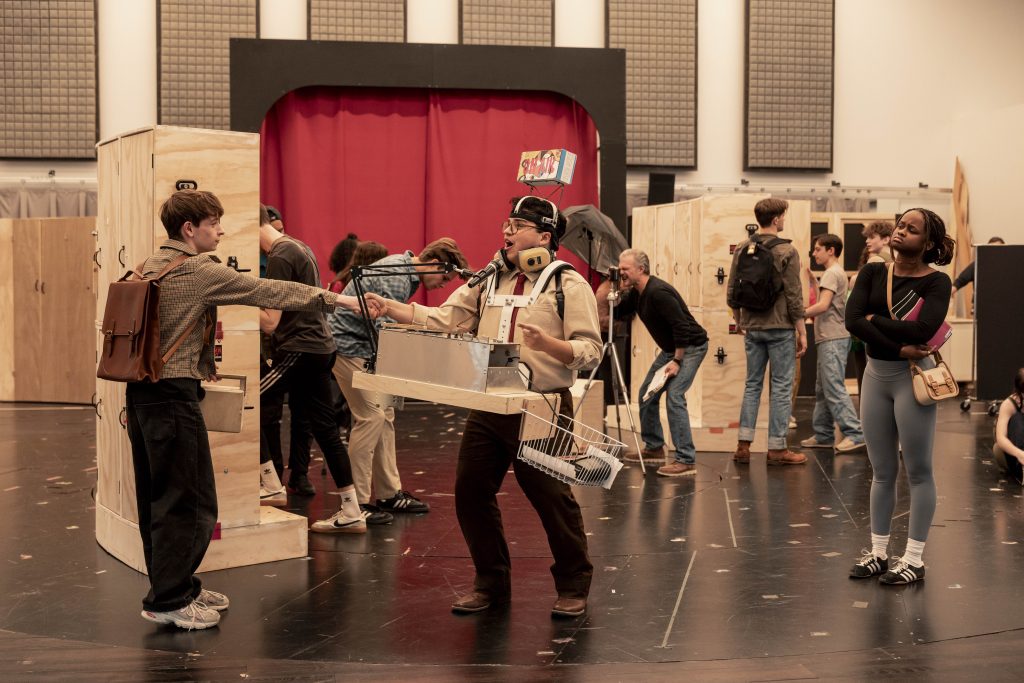
For now, Carlos has his life figured out. He’s out of the hotel and into an apartment on the Upper East side, he has a year of steady employment in New York, his short film is almost ready to start being pitched to festivals, and he still has a number of TV projects to be released. It’s hard to think what more he could be doing.
As I ask him what he thinks is next, Carlos pauses. The light streaming into his apartment from a light source I can’t see reflects off his round tortoise-shell glasses. He furrows his brow in contemplation for just a moment before beginning.
“I’d be a fool to predict … [but] I’d be a fool not to prepare and plan,” he says. “Acting is an industry where you’re taught that you deserve nothing, and you should be grateful for everything—which always frustrated me. I want to build out my team. I want to grow as an actor. I’m striving for the next bigger thing always, and there’s no cap to that.”
After a breath, he continues. “I’m not going to close myself off and say that ‘this is it; I made it.’ This is just the first step. So, if a Netflix Broadway production that is one that you’ll have never seen before is my first step, step two is going to be even bigger than that.”

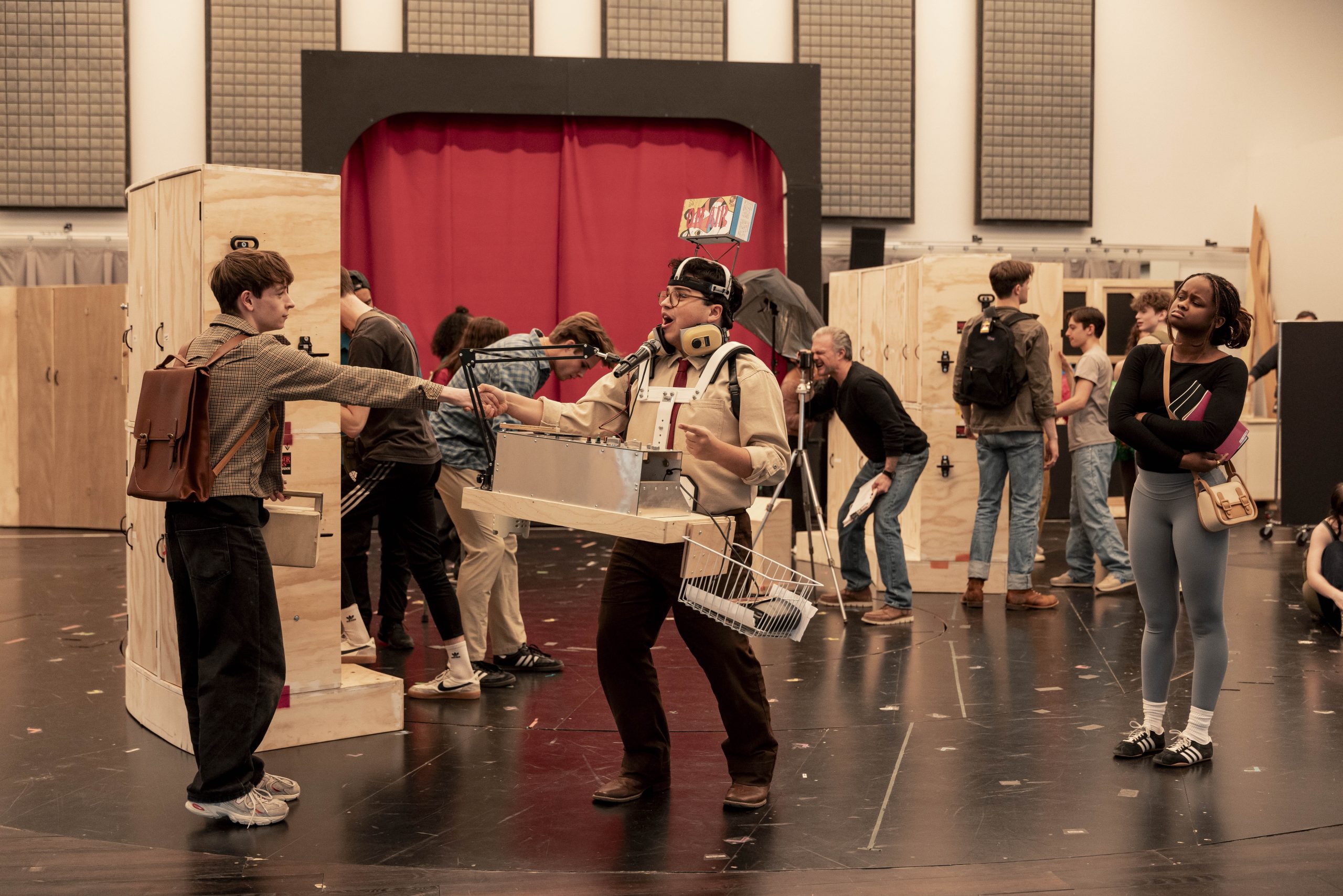










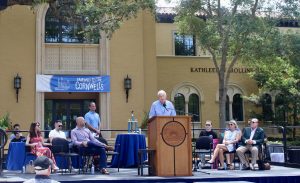
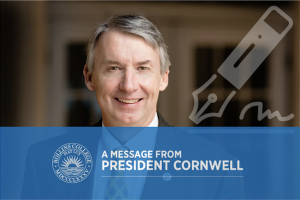
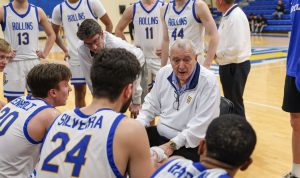

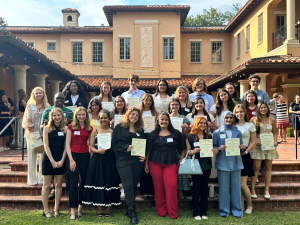

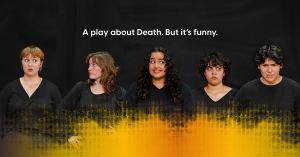

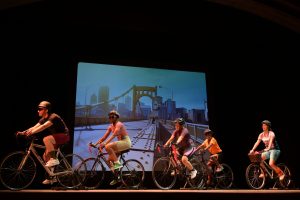
Comments are closed.